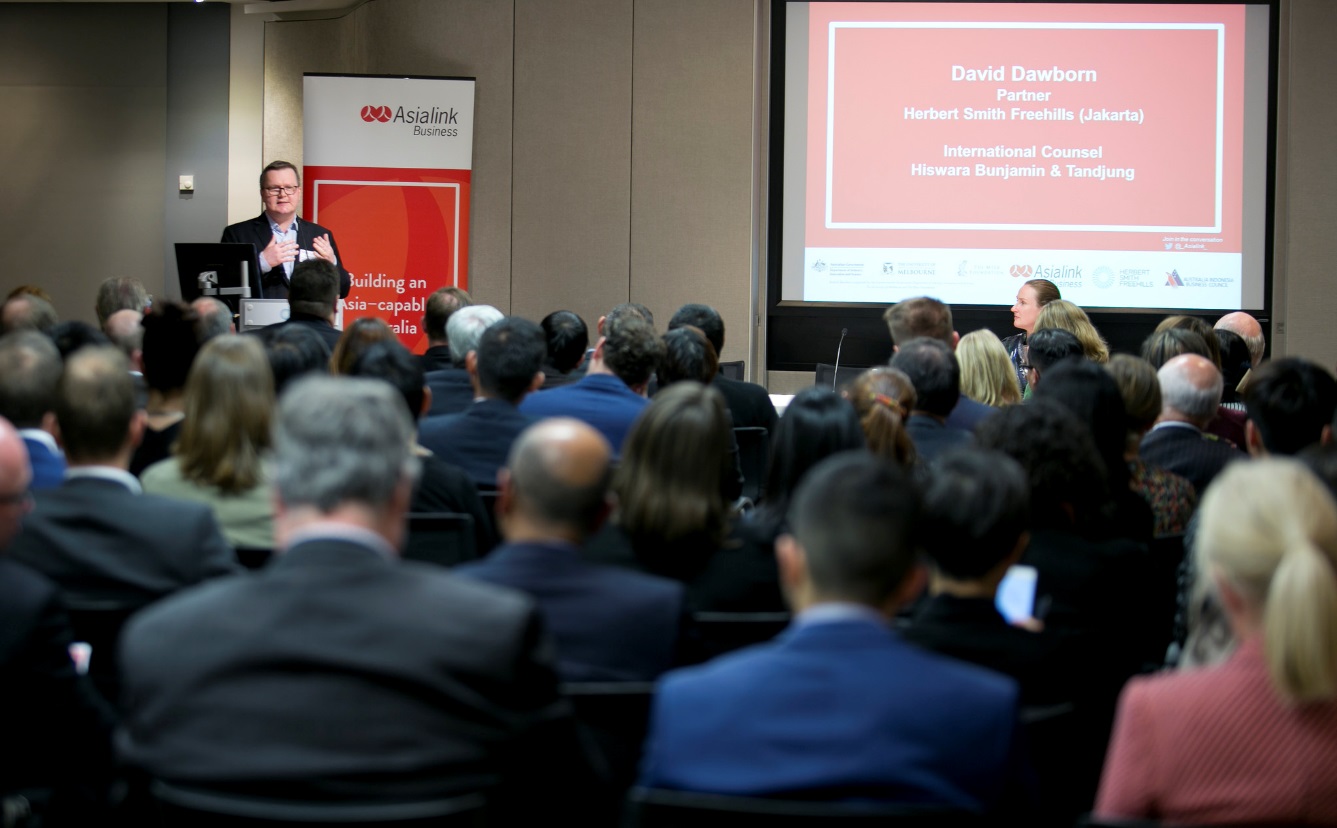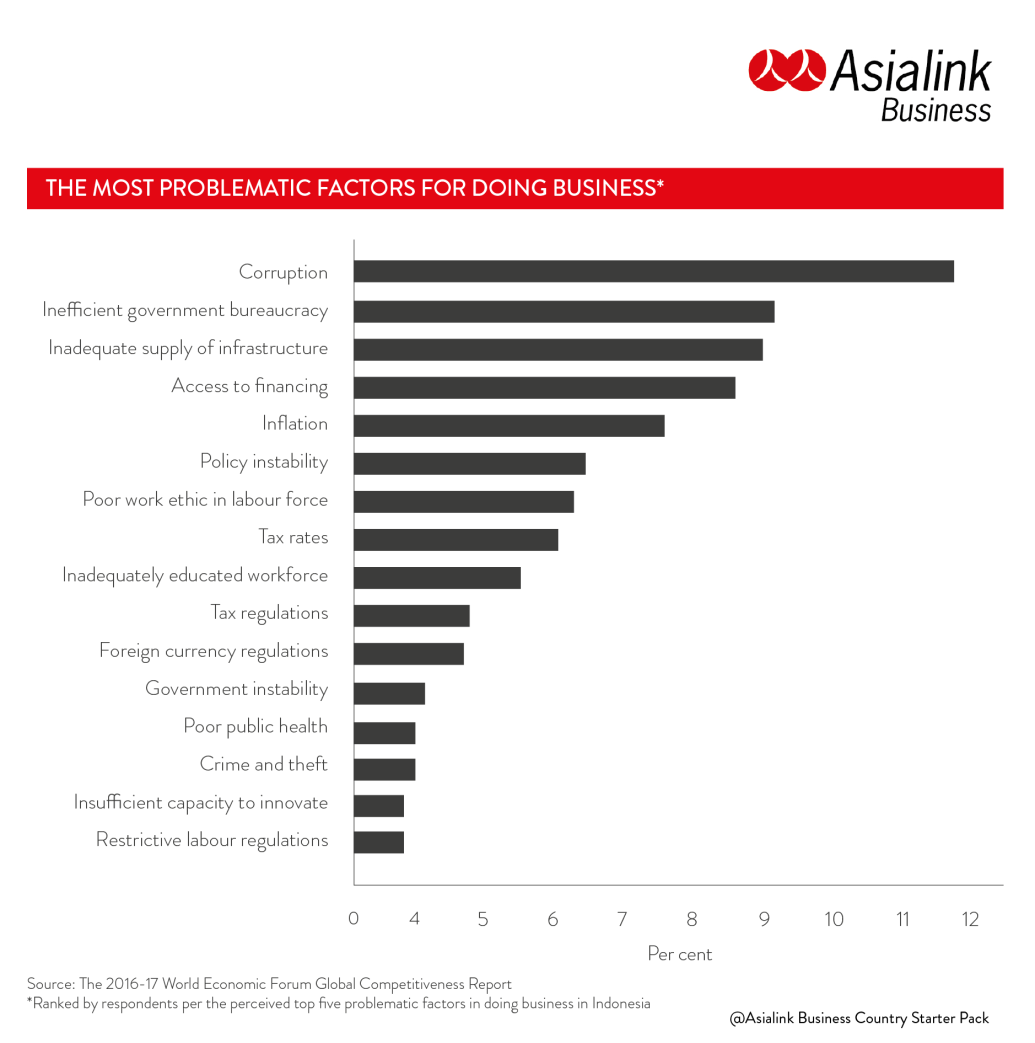-
Recent negotiations on the Indonesia-Australia Comprehensive Economic Partnership Agreement (IA-CEPA) have sent encouraging signals the important trade deal may soon be signed.
"Businesses which have built a good understanding of Indonesia’s corporate environment and have adapted their offering to suit the Indonesian market stand the best chance of benefitting."
Raj Wilson, Director of Marketing and External Relations at Asialink BusinessWhen finalised, the agreement will further open new markets in Southeast Asia’s largest economy, especially for Australian services providers.
However, businesses which have built a good understanding of Indonesia’s corporate environment and have adapted their offering to suit the Indonesian market stand the best chance of benefitting.
At a business forum in Melbourne last week, industry leaders shared insights into these opportunities, as well as practical advice on how to overcome the myriad challenges international investors face in Indonesia.
The message was clear: Indonesia’s business environment is opening up to foreign investment but is also being transformed by socio-economic change, globalisation, corruption and political reform.
From understanding their customers, to adapting to local business culture and navigating opaque regulations, many Australian businesses are beginning to grapple with the complexity of doing business in Indonesia.
{CF_IMAGE}
The changing Indonesian consumer
One of the most important success factors for doing business with Indonesia is understanding the Indonesian consumer.
The composition of Indonesian society is changing at an unprecedented rate, with about five million people entering the consuming class each year, according to McKinsey research.
Millions of Indonesians are also joining the workforce each year and the country’s population is now entering its prime. For the next 15 years, Indonesia will have more people working than not.
The flow-on effects of this colossal labour force are very important for Australian exporters, according to Victorian Government Senior Trade Manager Amelia Fyfield.
“Indonesia’s demographic dividend is going to provide a lot of opportunities in coming years for Australian products, which are often seen as being superior in quality,” Fyfield told the Melbourne forum.
Despite relatively modest discretionary spending, many Indonesian middle class consumers are “aspirational buyers,” Fyfield said. They favour high-quality brands and nutritional products and treat themselves and their families to such purchases.
It is these transactions Australian exporters should be targeting to build brand loyalty among Indonesian households.
Know your customer
But exporters cannot rely on their experiences selling to the Australian market alone. Extensive market research into the consumer purchasing habits of the Indonesian market and adapting Australian products to the market is needed first.
Herbert Smith Freehills (Jakarta) partner David Dawborn gave the example of the considerable differences between Australia and Indonesia’s product packaging.
Indonesian packaging is generally smaller than Australian packaging and food and liquids often come in sachets rather than bottles or large packets.
“There is no point trying to sell a two-litre bottle of sauce when warungs (small stores) sell sauce in sachets,” Dawborn said.
Likewise, an understanding of on-the-ground logistics in Indonesia is crucial.
Cold chain storage for fresh food products, for example, is really only a reality in Jakarta and Bali, said Fyfield.
Understanding Indonesian business culture
Indonesia’s complex business culture has also at times vexed Australian companies and according to Dawborn is “about as far from Australian culture as you will find”.
Indonesians are indirect communicators and place significant importance on building personal relationships. A professional connection can often only be reached after a strong personal connection is established.
Blackmores Deputy Managing Director for Asia, Dean Garvey, told the business forum it was vital for Australians to endear themselves to their Indonesian partners by immersing themselves in Indonesian culture.
“My first piece of advice is to quickly move from a corporate relationship to a personal relationship,” Garvey said.
Cultural nuances often also make the recruitment process in Indonesia “really tough”, he said. “Indonesians can be cautious of appearing over ambitious.”
To recruit truly motivated staff, Garvey said Australian companies must cast their net wide in Indonesia and look particularly at candidates from public universities.
Corruption and regulatory risk
Australian companies do need to be wary of potential corrupt practices in day-to-day business in Indonesia.
Corruption was recognised as the most problematic factor for doing business in Indonesia in the 2016-17 World Economic Forum Global Competitiveness Report.
Despite significant recent efforts at a national and provincial level to quell its influence, corruption still plays a regular part in business transactions.
{CF_IMAGE}
“All forms of corruption are prohibited in Indonesia but in reality, facilitation is a daily occurrence,” Dawborn said.
According to ITS Global Associate Director Khalil Hegarty, opaque regulatory regimes “can also deter investors, as can a lack of institutional robustness”.
While the IA-CEPA will provide better access to the Indonesian market for many Australia products, it will not be able to solve this issue of inconsistent regulatory enforcement in Indonesia, he said.
Most importantly, the IA-CEPA will require a proactive effort on the part of the business communities of both countries to seek new opportunities under the agreement.
Australian businesses need to act quickly to realise these opportunities – there are already a host of international competitors closely considering Indonesia for their next investments.
The State of the Nation: Indonesia event series was hosted by Asialink Business and Herbert Smith Freehills, at locations across Australia, in partnership with the Australia Indonesia Business Council.
Raj Wilson is Director of Marketing and External Relations at Asialink Business
The views and opinions expressed in this communication are those of the author and may not necessarily state or reflect those of ANZ.
-
-
anzcomau:Bluenotes/asia-pacific-region,anzcomau:Bluenotes/asia-pacific-region/trade
Good signs for Aus, Indo trade
2017-05-12
/content/dam/anzcomau/bluenotes/images/articles/2017/May/Jakarta_banner.jpg
EDITOR'S PICKS
-
The world’s attention has been focussed on the drama and romance of Joko Widodo’s journey to president, but the transition is also another chapter in the evolution of Indonesia into a major economy.
27 October 2014 -
Indonesia is on the cusp of a new ‘golden era’ where the principal arms of economic policy in the country coordinate to implement new President Joko Widodo's development plan.
3 February 2015 -
When in Jakarta you often hear how the Australian market is too small, too taxed and too regulated to be worth the effort.
17 November 2015


